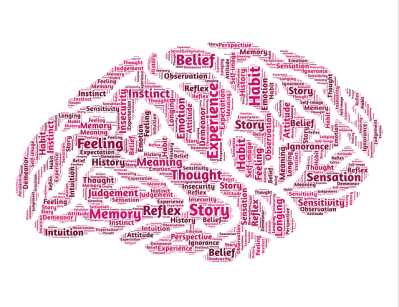 I don’t know that I ever would have guessed this, but someone at church started providing their Rock Band game during our weekly volleyball/game night, and I can’t think of a better way to say this: it kicks my anxiety’s bu*t! Every week after playing, my anxiety is practically gone, enough so that after just the first week I was thinking, “If I get disability and my disability back pay, I’m going to buy Rock Band!” Can you imagine my recovery? “Take one hour of Rock Band drums, vocals, and a little guitar a day, and your anxiety level will be low enough to get rid of at least half of your PTSD symptoms…..” I don’t know if it would be as dramatic as that, but it’s been a long time since I’ve found anything that made that much of a difference, aside from time with friends and my therapist and doctor.
I don’t know that I ever would have guessed this, but someone at church started providing their Rock Band game during our weekly volleyball/game night, and I can’t think of a better way to say this: it kicks my anxiety’s bu*t! Every week after playing, my anxiety is practically gone, enough so that after just the first week I was thinking, “If I get disability and my disability back pay, I’m going to buy Rock Band!” Can you imagine my recovery? “Take one hour of Rock Band drums, vocals, and a little guitar a day, and your anxiety level will be low enough to get rid of at least half of your PTSD symptoms…..” I don’t know if it would be as dramatic as that, but it’s been a long time since I’ve found anything that made that much of a difference, aside from time with friends and my therapist and doctor.
I’ve been singing my whole life. I have a minor in music, I’ve conducted several church choirs and got to conduct my college choir once out of a stroke of luck (and maybe some hard work, but there was luck involved), and growing up my favorite thing to do at home was to sit at the piano and play and sing. For some reason it’s not the stress reliever now that it once was. If I get to help out by accompanying our church choir when my hands aren’t shaking too much, I really enjoy it, even though I get excited when the better piano player shows up. I like to be able to be helpful, but I prefer the other person. When singing, I love to get to sight-read the hard parts. I’ve been able to sing, on and off, in more rigorous community choirs over the past years since college, but sometimes after a semester or two (what they call it, even though they’re not college choirs) if my anxiety levels get too high again, it gets to be an anxiety producer instead of an anxiety-buster. One strange thing about anxiety is that something that is helpful can turn into too much.
In the most recent large choir I was in, it could be the level of the noise (even if beautiful) or the mood of the director or a sudden burst of claustrophobia with so many people in the room (or a combination of all of it) that would get to me. I’d be doing breathing or inner meditation exercises, but my hands would start to shake harder and I’d start to get dizzy and suddenly I’m overwhelmed too much to stay in the room. The most recent choir directors didn’t like us to sit down, but sometimes I’d sit anyway, because….health issues. But I still felt like a failure. I felt comfortable discussing it with the choir president, but I wasn’t sure that the directors would think it was such a good idea for me to be there, and eventually it got to be too much, so that I knew it was too much, too. So choir, the thing that helped me keep my sanity through my first two years of college, had to go again. I couldn’t sing in choir my junior and senior years of college, either, which is a very long story in and of itself. And yes, it was anxiety/fatigue. One of the hardest times of my life, when it all became serious.
So in the same way that Rutter, Fauré, Mozart, and John Jacob Niles helped me in college: it looks like Queen, Bon Jovi, Green Day and Pat Benatar may help me out of my current funk. When I’m around others, I tend to have a sense of humor and joke around a lot: but when I’m at home, I seem to be too serious, and perhaps more my “over-thinking” self. It’s so exciting to find things that work, no matter how odd it may seem. Rock Band’s drums seem to be especially effective. They just make me happy, even if I get a terrible score. 🙂 I can live with this!
Exercise, a healthy diet, and…..Rock Band.
On that note, the FODMAP diet has been helping, but true again to my over-thinking nature, I get to where I worry about it and then my stomach hurts from the worry, and not just from what I eat. My therapist and doctor both smiled and said that was really common. The cherry on top of that info? My new primary care doctor (new insurance) has IBS as well! I was hit with a feeling of peace when she told me and I knew that she understood.
 So my stomach was bothering me a LOT yesterday. On the 1-10 pain scale, I was probably at a 6 or 7. I had some paperwork that I had to finish though, so I had to get on the bus and get back to the library to print some things out. So, what did I do? I forgot the notebook with the information in it that I needed to log into the website where I needed to print out the forms. I tried to make myself feel a little better by checking out a couple of library books. I then called several friends to see if they could help me out. The situation was getting a little ridiculous. I have had a ton of paperwork to do lately, but three weeks of bus rides just to get it done was frustrating me, because it feels like I haven’t gotten much of anything else done during the day.
So my stomach was bothering me a LOT yesterday. On the 1-10 pain scale, I was probably at a 6 or 7. I had some paperwork that I had to finish though, so I had to get on the bus and get back to the library to print some things out. So, what did I do? I forgot the notebook with the information in it that I needed to log into the website where I needed to print out the forms. I tried to make myself feel a little better by checking out a couple of library books. I then called several friends to see if they could help me out. The situation was getting a little ridiculous. I have had a ton of paperwork to do lately, but three weeks of bus rides just to get it done was frustrating me, because it feels like I haven’t gotten much of anything else done during the day.
On the way home, I knew it was getting time for dinner, and I just didn’t want to eat anything. It came to my mind my favorite treat that is allowed on my diet, but that I try not to eat too often, a Lindt Intense Mint bar. I thought, “I could eat one of those,” and suddenly my stomach pain was gone. Completely gone. Like that, I went from a 6 to a 0, just from the idea that I could eat one (so of course I did). I wish anxiety and physical symptoms always worked that way! (Believe me, I’ve tried….thousands of time). I was so happy that I was almost giddy.















